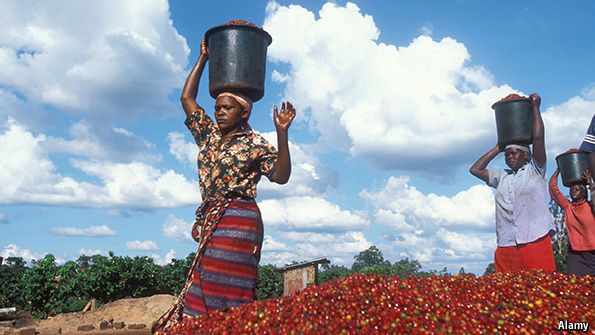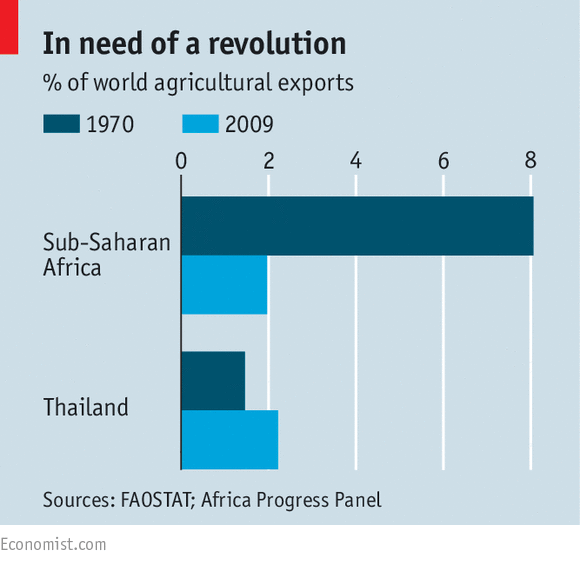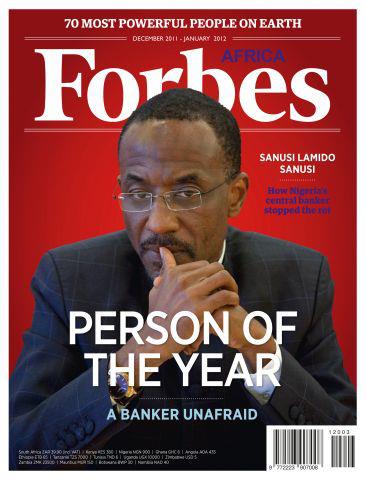Moody's Downgrades Zambia Rating on Power Crisis, Metal Prices
Matthew Hill Gabrielle Coppola
September 25, 2015 — 6:26 PM EDT
Moody’s Investors Service downgraded its credit rating forZambia, Africa’s second-biggest copper producer, citing lower growth and an extended period of weak commodity prices.
Zambia’s rating was cut one level to B2, five steps below investment grade. The outlook on the rating was changed to stable from negative.
The southern African nation is grappling with its worst-ever power shortage and metal prices that have fallen to six-year lows, prompting companies including Glencore Plc to halt operations. The kwacha has fallen 41 percent against the dollar this year, theworst performance among the world’s currencies.
“The key driver for the downgrade is our expectation that the trend of persistent fiscal deficits and deterioration in debt metrics witnessed over the past few years is likely to continue,” Moody’s analyst Matt Robinson wrote in an e-mailed report. “An extended period of weak commodity prices, constrained copper production, and domestic electricity shortages” are hurting business activity, he wrote.
Yields on Zambia’s $1.25 billion Eurobonds maturing in 2027 have climbed to 11.4 percent from 9.4 percent when they were sold in July.
Moody’s held its rating of Zambia’s foreign debt at B1 in May while changing the outlook to negative from stable. Glencore’s decision to suspend output in the country threatened growth the government forecast would reach 5 percent this year, the company said in a report this month.
Standard & Poor’s on Friday affirmed its B rating on Zambia, also five steps below investment grade, with a stable outlook.
Moody's Downgrades Zambia Rating on Power Crisis, Metal Prices
Matthew Hill Gabrielle Coppola
September 25, 2015 — 6:26 PM EDT
- Growth to fall below 5% for first time since 2002, report says
- Moody's sees higher debt costs after currency depreciation
Moody’s Investors Service downgraded its credit rating forZambia, Africa’s second-biggest copper producer, citing lower growth and an extended period of weak commodity prices.
Zambia’s rating was cut one level to B2, five steps below investment grade. The outlook on the rating was changed to stable from negative.
The southern African nation is grappling with its worst-ever power shortage and metal prices that have fallen to six-year lows, prompting companies including Glencore Plc to halt operations. The kwacha has fallen 41 percent against the dollar this year, theworst performance among the world’s currencies.
“The key driver for the downgrade is our expectation that the trend of persistent fiscal deficits and deterioration in debt metrics witnessed over the past few years is likely to continue,” Moody’s analyst Matt Robinson wrote in an e-mailed report. “An extended period of weak commodity prices, constrained copper production, and domestic electricity shortages” are hurting business activity, he wrote.
Yields on Zambia’s $1.25 billion Eurobonds maturing in 2027 have climbed to 11.4 percent from 9.4 percent when they were sold in July.
Moody’s held its rating of Zambia’s foreign debt at B1 in May while changing the outlook to negative from stable. Glencore’s decision to suspend output in the country threatened growth the government forecast would reach 5 percent this year, the company said in a report this month.
Standard & Poor’s on Friday affirmed its B rating on Zambia, also five steps below investment grade, with a stable outlook.
Moody's Downgrades Zambia Rating on Power Crisis, Metal Prices





















